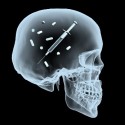Texas
Are you looking for treatment centers in Texas but aren’t quite sure where to begin or how to choose a treatment program in Texas that is right for you?
We can help you find and choose quality and effective treatment centers in Texas that provide you with the counseling and addiction rehabilitation services that you require to make a full recovery from addiction and regain control of your life. Treatment centers in Texas provide you with the help, hope and support that you need when you have hit rock bottom, given up hope, relapsed multiple times or just need the help.
Texas treatment centers provide drug and alcohol addiction treatment, counseling, therapy, access to 12 step programs and non 12 step programs, and various other treatment modalities that assure you make a full and safe recovery from addiction despite being addicted to heroin, methamphetamine, prescription medications, alcohol or any other substance. Whether you are are in Garland or Austin, Dallas or Fort Worth or if you are in Houston or any of the surrounding towns of Texas, there’s a treatment center locally that can help you.
For more information about Texas treatment centers and the various types of drug and alcohol addiction treatment available to you in Texas, call 888-647-0579 ( Who Answers?) to speak with an intake specialist today.
Treatment centers in Texas provide support for individuals and their families during this difficult time of need. Families can greatly benefit from many of the counseling and educational sessions that are provided by treatment centers in Texas. These sessions help families to better understand addiction and the entire treatment process so that they can learn how to effectively help their loved one without actually harming their recovery efforts or becoming an enabler. Additionally, many of the treatment centers in Texas also provide transitional counseling that helps families to work out their problems and emotional pains with the addict prior to the end of the treatment program.
Relapse becomes a part of life for many of the people who suffer from addiction and as a result, they often try many many times to stop using drugs or alcohol and are faced with the guilt and pain of having failed. Unfortunately, many will relapse many times before they finally seek the specialized help that can be found at treatment centers in Texas. Luckily, with the help of Texas treatment centers and the staff at these facilities, people who have relapsed even hundreds of times can get the support and guidance that they need to overcome this difficult situation. If you or someone you know has relapsed many times and needs help, call 888-647-0579 ( Who Answers?) to speak with a treatment specialist today.
Treatment centers in Texas help individuals of all walks of life and all addictions so there’s no need to feel like you are ever alone in your fight. Thousands of people in Texas suffer from addiction and require help in order to stop using drugs on their own. You can make a full recovery, regain control of your life and live sober if you have the commitment and will for sobriety. You provide the commitment to your own sobriety and Texas treatment centers will provide you with the guidance, support and therapy you need to fully recover.

